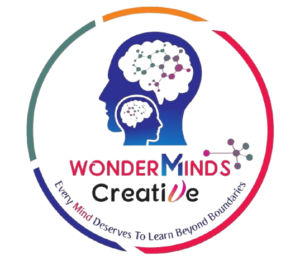Service Details

Music Therapy: An Overview
What is Music Therapy?
Music Therapy is a therapeutic approach that uses music to address physical, emotional, cognitive, and social needs of individuals. In this form of therapy, a trained music therapist uses music interventions, such as playing instruments, singing, listening to music, and creating music, to promote healing and enhance quality of life. It is an evidence-based practice that can be adapted to suit individuals of all ages and abilities.
Why is it Important?
Music Therapy is important because it offers a non-verbal, creative medium for expression and healing. It can be particularly beneficial for children who may have difficulty communicating their thoughts and feelings through words. Music has the power to engage multiple areas of the brain, making it an effective tool for cognitive, emotional, and social development.
Who Can Benefit?
Music Therapy is beneficial for:
Children with developmental delays: Including those with autism spectrum disorder (ASD), ADHD, and learning disabilities.
Individuals with emotional or behavioral issues: Such as anxiety, depression, or trauma.
Children with speech and language difficulties:
Music can aid in developing communication skills.
Those with physical disabilities:
Music can help improve motor skills and coordination.
Any child or adult seeking emotional support:
Music Therapy can be a soothing and enriching experience for anyone.
What Does Music Therapy Involve?
Music Therapy sessions may include:
Active Participation:
Engaging in singing, playing instruments, or moving to music to improve motor skills and coordination.
Listening to Music:
Using specific types of mindfulness music / nature / water , to evoke emotional responses, reduce anxiety, or improve mood.
Music Creation :
Composing or improvising music to express feelings and thoughts, which can be particularly therapeutic.
Music-Based Games:
Fun activities that promote social interaction, cognitive development, and emotional expression.
Guided Relaxation:
Using calming music to promote relaxation and stress reduction.
How Does It Help? Music Therapy helps in several ways:
Enhances Communication:
Music provides an alternative way to communicate, especially for those with speech or language challenges.
Improves Emotional Well-being: Music can help regulate emotions, reduce stress, and provide comfort.
Promotes Cognitive Development:
Music engages different parts of the brain, aiding in memory, attention, and problem-solving skills.
Encourages Social Interaction: Group music therapy sessions can help children develop social skills and build connections with others.
Supports Physical Rehabilitation: Music can be used to improve motor skills, coordination, and physical movement.
In summary, Music Therapy is a versatile and effective therapeutic approach that harnesses the power of music to support the overall development and well-being of individuals. Whether used for emotional support, cognitive development, or physical rehabilitation, Music Therapy offers a unique and enjoyable way to achieve therapeutic goals.
Frequently Asked Question
We offer a wide range of therapies, including occupational therapy, speech therapy, behavioral therapy, and sensory integration therapy.
If your child is showing delays in developmental milestones, difficulties in communication, or behavioral challenges, a consultation can help determine if therapy is beneficial.
The first session typically involves an assessment to understand your child's needs, followed by setting goals and creating a personalized treatment plan.
The duration of therapy varies depending on the child's individual needs and progress, and will be regularly reviewed by the therapist.
Yes, we provide regular progress reports to keep you informed about your child's development and the effectiveness of the therapy.
We offer guidance and activities for parents to reinforce therapy goals at home, ensuring consistent progress.
While it’s not always required, parental involvement is encouraged as it can enhance the therapy’s effectiveness and support the child’s development.
We offer both one-on-one and group sessions, depending on what is most appropriate for the child’s needs.
Our therapists are well qualified professionals with specialized training and experience in their respective fields.
Coverage varies by insurance provider, and we can assist you in understanding your benefits and how they apply to our services.
